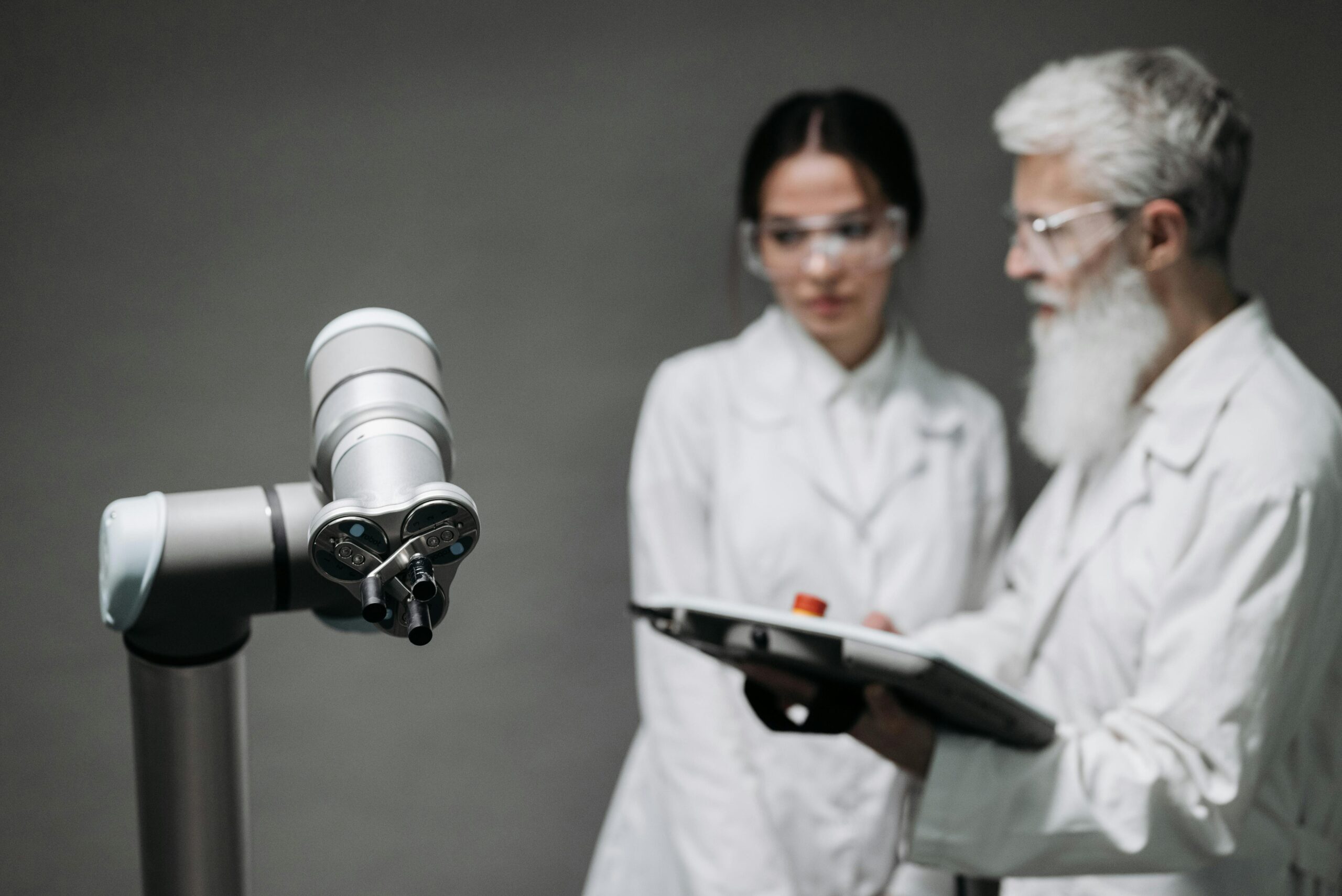Recent technological advancements in artificial intelligence are revolutionizing every facet of the healthcare industry, from predictive analytics and personalized treatment plans to enhanced clinical decision support systems. With AI tools, healthcare providers gain valuable insights to improve patient care, quality of life, and health outcomes. AI integration in clinical care has transformed a complex, time-consuming, and error-prone process into the most accurate and easiest one.
AI promises not only to enhance clinical decision-making but also to improve medical education significantly, equipping future clinicians with clinical decision-support systems (CDSS) and tools that can accelerate learning and improve patient outcomes.
Let’s explore the role of AI in clinical decision-making and the importance of integrating AI into medical education.
Understanding AI in Clinical Decision-Making
Clinical decision-making is at the heart of healthcare practice. It involves diagnosing diseases, choosing treatment options, managing patient care, and determining the best course of action to ensure the most effective outcomes. Traditionally, these decisions have been based on a combination of the physician’s experience, intuition, medical knowledge, and the patient’s history.
AI, machine learning (ML), and deep learning (DL) technologies can assist clinicians in making these decisions by analyzing vast amounts of data that were once considered too complex or time-consuming for humans to process. With the help of AI algorithms, computers can detect patterns in medical data, such as imaging, genetic information, and lab results that might go unnoticed by the human eye.
How Artificial Intelligence is Improving Clinical Decision-Making?
Diagnostics
AI has demonstrated its power in diagnostic applications, especially in medical specialties like radiology and pathology. AI algorithms can analyze images, scans, and slides with precision and identify early signs of chronic health diseases such as cancer, heart disease, and neurological disorders. AI models are so accurate and can even surpass the accuracy of radiologists in detecting irregularities in medical images such as X-rays, CT scans, and MRIs.
Predictive Analytics
AI can predict the worsening or advancement of the diseases and the chances of specific outcomes based on patient data. AI tools can assess a patient’s risk for developing certain conditions, such as stroke or heart failure, by analyzing a combination of medical history, genetic data, lifestyle factors, and real-time health data.
Personalized Medicine
Undoubtedly, it is one of the most groundbreaking advancements of AI technology that can help doctors tailor personalized treatment plans based on the patients’ conditions. By analyzing data from diverse sources such as genomic information, AI can suggest treatment plans that are more likely to be effective for the specific characteristics of a patient’s condition.
Clinical Decision Support Systems (CDSS)
AI-powered Clinical Decision Support Systems (CDSS) are being designed to help healthcare professionals make informed, evidence-based decisions with greater accuracy and efficiency. These systems are so intelligent and can integrate a wide range of data points to give recommendations that can eventually improve health outcomes.
Integrating AI into Medical Education
As AI continues to shape clinical decision-making, future medical professionals must be equipped to use these technologies effectively. Integrating AI into medical education will ensure that medical students, residents, and practicing clinicians understand the full potential of these technologies and are better prepared for the evolving landscape of healthcare. St. kitts medical schools are integrating AI into medical curricula to enhance students’ diagnostic accuracy, clinical decision-making, and data interpretation skills.
1. AI in Medical Training and Simulation
Medical education has long relied on clinical rotations, simulations, and hands-on training to expose students to real-world medical problems. AI can play a significant role in medical training by enabling more sophisticated simulations and providing a platform for interactive learning. AI-driven simulation tools can replicate a wide variety of medical conditions, allowing the students to practice diagnosing and treating patients in a controlled, risk-free environment.
Virtual Patients
AI can generate virtual patients that exhibit a range of medical conditions, allowing students to make decisions in real-time, without the ethical concerns of experimenting on real patients. These virtual patients can simulate complex scenarios that might not be encountered frequently during traditional clinical practice.
Simulated Clinical Scenarios
AI-powered platforms offer students simulated clinical cases of varying difficulty, allowing them to strengthen their clinical reasoning and decision-making skills across a wide range of scenarios.
At Windsor University School of Medicine, students benefit from a cutting-edge clinical simulation center that immerses them in real-world medical environments. This advanced facility supports hands-on, interactive learning through realistic medical simulations. The goal of WUSOM’s clinical simulation center is to enhance clinical competency and offer comprehensive training in a controlled, supportive setting.
2. Enhancing Decision-Making Skills
AI can act as an educational partner, offering real-time feedback and suggestions to students while they practice making clinical decisions. Through AI-integrated platforms, students can engage in diagnostic challenges, where the AI provides immediate feedback on their choices, highlighting areas where they might have missed critical information.
Interactive Case Studies
AI can generate case studies based on real-world data, which students can then analyze. By using AI to evaluate their decisions, students can learn how to navigate complex clinical scenarios and develop a more nuanced understanding of clinical reasoning.
AI-Driven Algorithms
Medical students can be trained to use AI algorithms to make evidence-based decisions. This helps them become familiar with AI tools and learn how to integrate them into clinical practice.
3. Supporting Research and Evidence-Based Medicine
In addition to decision-making in the clinic, AI can support medical students in understanding the importance of evidence-based practice. AI can help students access and analyze vast amounts of medical literature and clinical guidelines, providing them with up-to-date information on treatments, drug efficacy, and clinical outcomes.
AI for Literature Review
Students can use AI tools to conduct comprehensive reviews of the latest medical research. AI systems can quickly sift through academic journals and databases, presenting relevant articles and studies that align with a student’s current learning topic or clinical question.
Data Mining and Pattern Recognition
AI can also help students better understand the complexities of data analysis, teaching them to recognize patterns in large datasets. By training on healthcare data, students can learn how to apply machine learning techniques to detect trends and predict patient outcomes.
4. AI as a Teaching Assistant
AI-powered tools can also act as virtual teaching assistants for medical students. These AI systems can provide personalized tutoring, answer students’ questions, explain complex concepts, and offer tailored learning experiences based on their progress.
Chatbots and Virtual Assistants
AI-powered chatbots can provide real-time answers to students’ questions about medical topics, offering explanations for medical terms, disease processes, and treatment protocols.
Personalized Learning Plans
By analyzing a student’s performance and areas of difficulty, AI systems can create customized learning plans, ensuring that students spend more time on areas where they need improvement.
Conclusion
The integration of artificial intelligence into clinical decision-making holds great promise for improving patient outcomes, increasing efficiency, and enhancing the learning experience for future medical professionals. By incorporating AI into medical education, we can ensure that future clinicians are well-equipped to navigate an increasingly digital and data-driven healthcare landscape.
As AI continues to evolve, its role in clinical decision-making and medical education will only expand, making it an essential component of modern healthcare education. In the years to come, the medical professionals who are adept at using AI will not only be able to make more accurate decisions but will also help lead the way in shaping the future of healthcare.







